Official If A Law Is Unjust Thomas Jefferson Quote Shirt
$22.99

Frequently bought together :
Thomas Jefferson, the third President of America, is distinguished for his profound grasp of the tenets of freedom and democracy. His manuscripts and orations continually inspire and guide generations. One of his most recognized sayings, “If a law is unjust, a person is not only justified in disobeying it, but he is obligated to do so,” stands as a lasting affirmation of the significance of civil resistance in opposition to despotism.
“If A Law Is Unjust” Thomas Jefferson Quotation Apparel, hoodie, long sleeve, v-neck tee
Jefferson upheld that the role of a government is to safeguard its citizens’ rights. If a regulation breaches these rights, he asserted, it loses legitimacy. In such scenarios, individuals possess a moral and ethical responsibility to contest the wrongful law. This doctrine of civil resistance has been referenced throughout history by many campaigners and social justice initiatives, including the United States Civil Rights Movement and the Indian liberation movement spearheaded by Mahatma Gandhi.
Jefferson’s statement also highlights the necessity of personal accountability and the influence of conscience. He maintained that every person has a divinely given ability to distinguish between right and wrong. When confronted with an inequitable law, people must depend on their own ethical guidance to direct their conduct. This demands bravery and determination, as those who defy oppressive laws might encounter persecution or imprisonment. Nonetheless, Jefferson believed that maintaining one’s principles costs significantly less than succumbing to despotism.
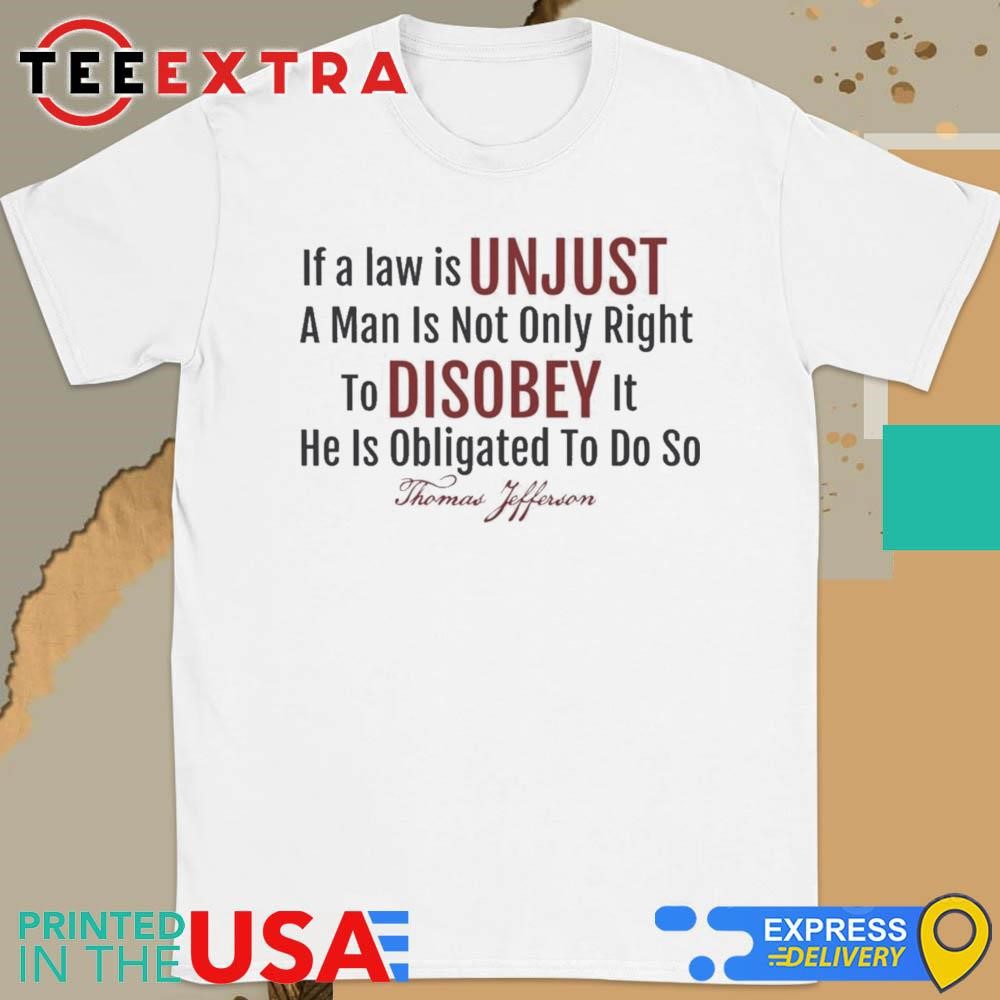
Details about “If A Law Is Unjust” Thomas Jefferson Quotation Shirt
In a society where injustice and repression linger, Jefferson’s words continue to have a profound impact. His conviction in the right and obligation of people to contest unfair laws is as crucial today as it ever was. By adopting the tenets of civil resistance, we can hold authority figures accountable, defend our rights, and strive for a fairer and more equitable society.
In the present day, Jefferson’s statement holds remarkable pertinence. The emergence of authoritarian governance, suppression of opposition, and the weakening of democratic structures have heightened the need for people to assert their right to civil resistance.
From the pacifist demonstrations of the 1960s to the Black Lives Matter movement occurring now, activists have called upon Jefferson’s statement to legitimize their opposition to wrongful laws. In nations where freedom of speech is curbed, individuals have braved imprisonment and even death to stand against oppressive regimes.
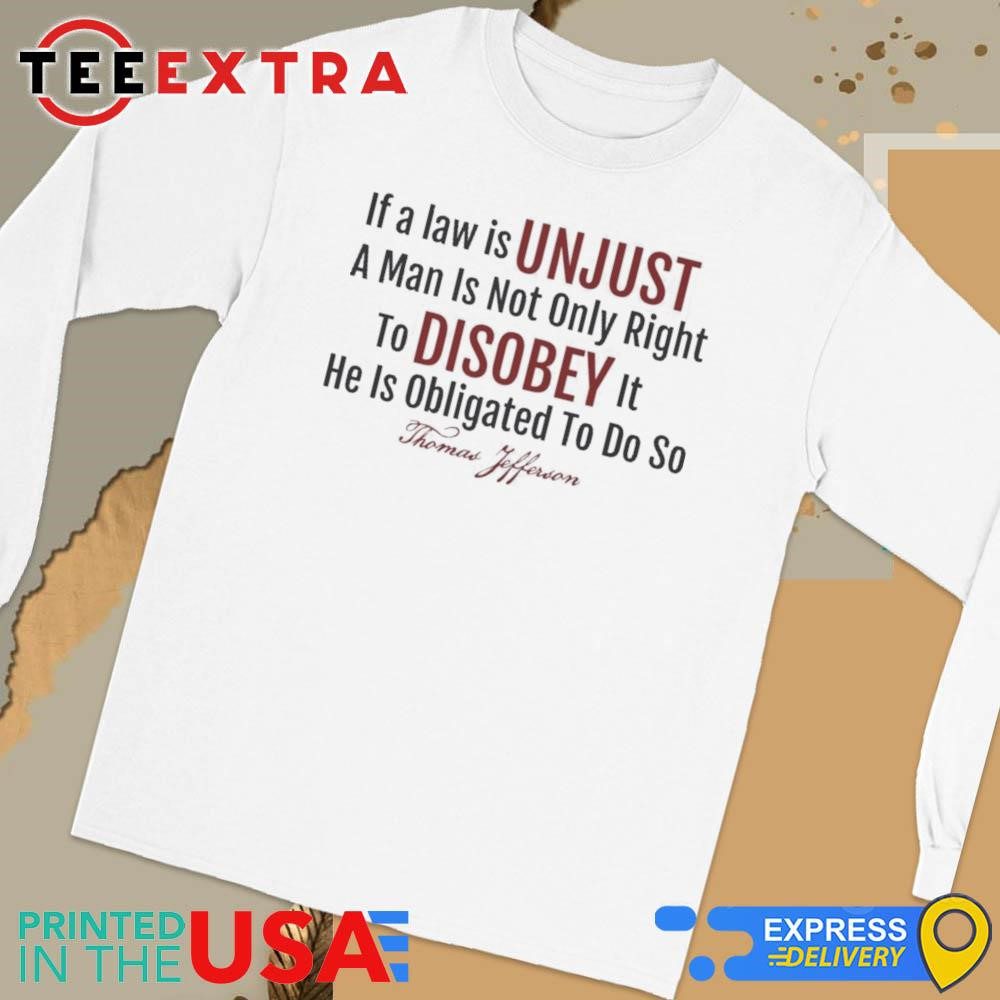

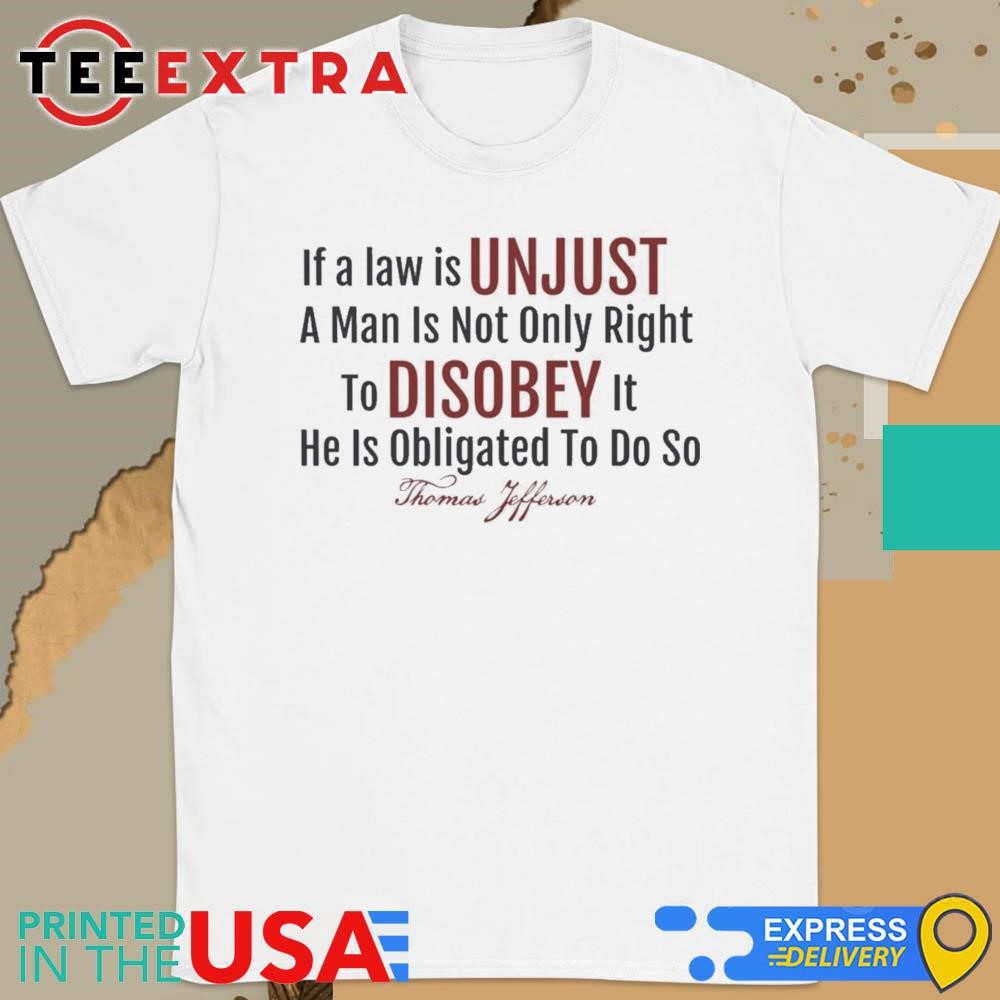


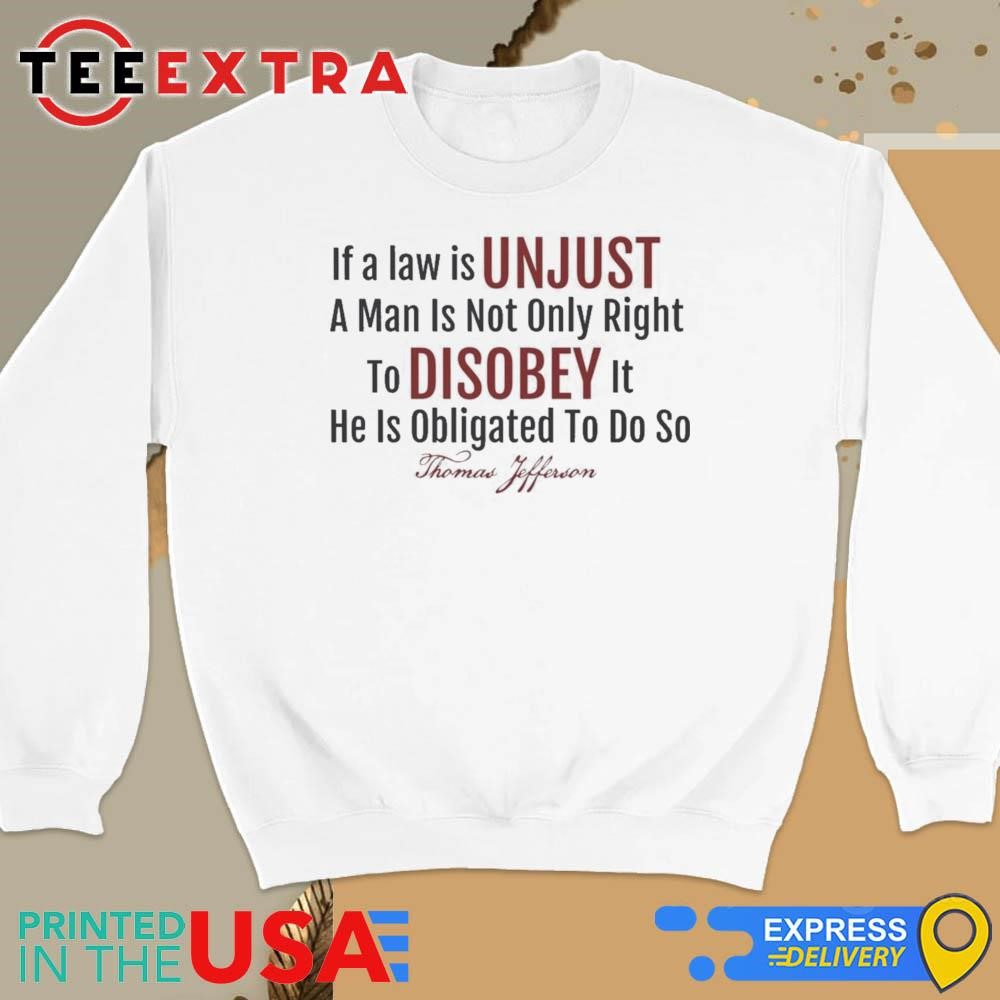
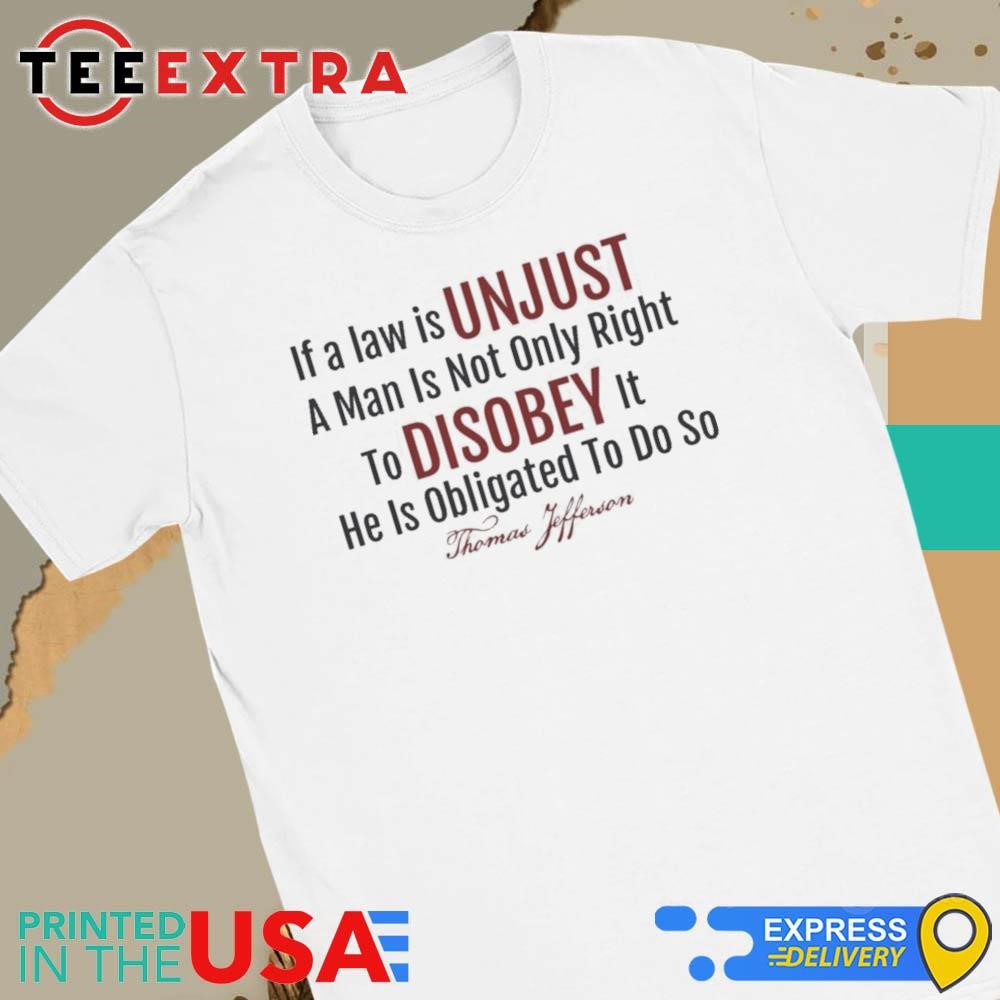
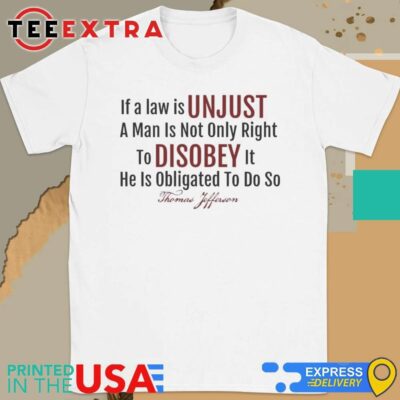
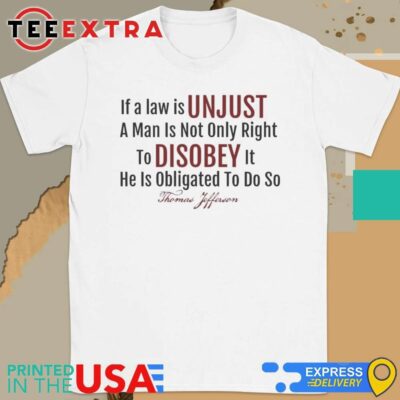
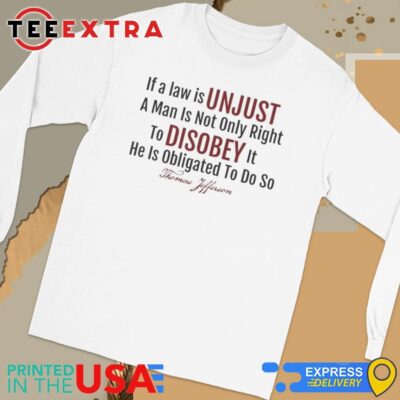
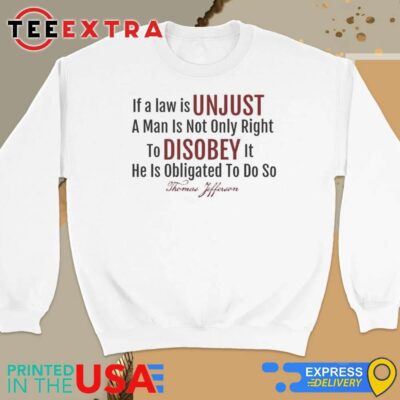
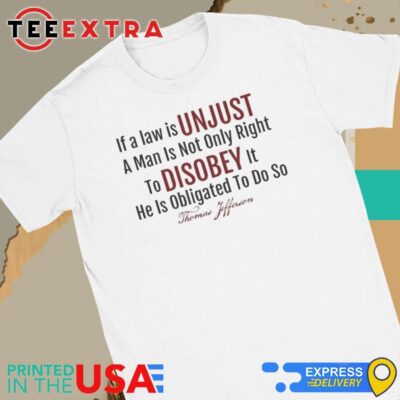





 Zum speed 350z fairlady shirt
Zum speed 350z fairlady shirt
 Zulu Huey Newton You Believe In Violence T-Shirt
Zulu Huey Newton You Believe In Violence T-Shirt
 Zuccarello Applesauce Shirt
Zuccarello Applesauce Shirt
 Zolita Queen Of Hearts shirt
Zolita Queen Of Hearts shirt
 Zheani Worship The Spiritual Meat Grinder Shirt
Zheani Worship The Spiritual Meat Grinder Shirt
 ZHC X BKTSQD Green Flame shirt
ZHC X BKTSQD Green Flame shirt